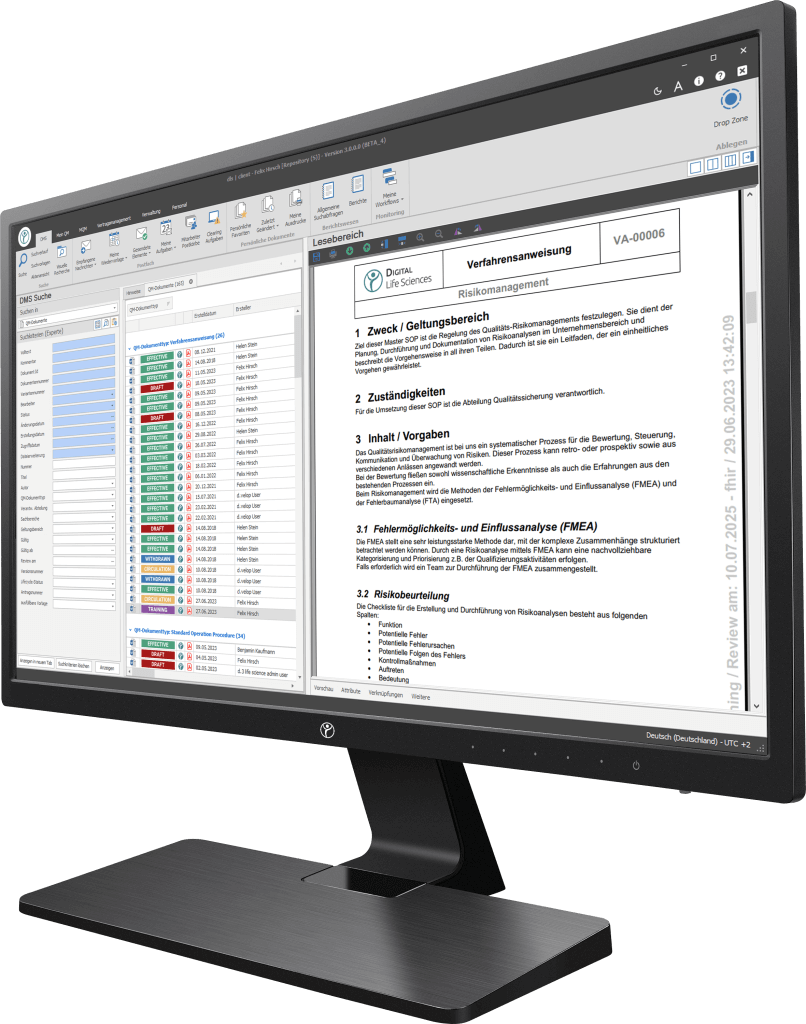Definition of the term (“What does ISO certification mean?”)
The ISO certification is a procedure that serves the purpose of demonstrating compliance with certain requirements. For example, ISO 9001 specifies which requirements need to be met when implementing a holistically recognized quality management system in a company. This serves as generally valid proof for customers and suppliers that the existing internal quality management based on the ISO certification has been successfully and fully implemented within the company.
What is ISO?
The International Organization for Standardization (ISO) is an independent organization that develops and publishes international standards. These standards cover a wide range of areas, including quality management, environmental protection, information security, and more.
Why is ISO important?
ISO certifications are of crucial significance for companies as they create trust among customers, partners and stakeholders. They show that a company meets certain quality standards and is committed to maintaining them.
Your path to digitization — Discover our software
Our digitization solutions primarily address document-based processes in manufacturing, production and quality management. The basis of the dls | eQMS is a holistic ECM/DMS system. The ECM/DMS system can be connected to your existing ERP system (e.g. SAP) and, thus, map almost all document-based processes in the company.

What are the types of ISO certifications?
There are different types of ISO certifications that can be selected depending on a company’s needs and goals. Here are some of the most common:
ISO 9001: Quality management
The ISO 9001 certification sets standards for quality management processes. It helps companies improve their quality assurance and meet customer requirements.
ISO 14001: Environmental management
This certification focuses on environmental aspects and helps companies to implement environment-friendly practices and reduce environmental impacts.
ISO 27001: Information Security Management
The ISO 27001 certification aims to ensure information security in organizations in order to protect sensitive data from threats.
How to obtain an ISO certification?
The ISO certification is implemented by an independent certifying company in order to guarantee independent proof of the comprehensive implementation of all requirements. In addition, it takes place on the basis of an audit in which all the areas of responsibility concerned are examined in detail.
Using ISO 9001 certification as an example, the process looks as follows :
- In the first stage of the certification audit, a thorough document review and evaluation of the company site takes place in order to determine the degree of compliance with the standard and the potential need for optimization prior to the actual audit .
- In a second stage, it is checked whether all documents are in accordance with ISO 9001… and the individual requirements. Finally, the results of the certification audit are recorded in an audit report in which any non-conformities and the audit process can be found .
Once the ISO 9001 certification has been successfully completed, a certificate is issued which can confirm the conformity of the QM system at any time .
What are the benefits of an ISO certification?
The ISO certification acts as a proof that the quality management system is up-to-date and meets all requirements. Furthermore, it increases the competitiveness of a company and also sets a minimum standard.
Other benefits include:
- Creation of legal conformity
- Implementation of a quality management system that establishes regulated processes, defines roles and responsibilities, and commits the company to improving processes and increasing process performance
- Conveys a transparency for the customer
- Audit results can be an advantage over competitors in terms of customer supplier selection
- Is often financially supported by the Federal Office for Economic Affairs and Export Control
Conclusion
The ISO certification is a powerful tool for companies to ensure quality assurance and compliance. It offers numerous benefits and is a sign of commitment and excellence. If your company is not yet certified, you should consider taking this important step.
Start your digital transformation with our powerful, modular software solutions
Frequently Asked Questions (FAQs)
Which ISO certification is best for my company?
The best ISO certification depends on your company’s goals and needs. A consultation with an expert can help to make the right choice.
How long does the ISO certification process take?
The duration may vary depending on the company and ISO standard. However, it usually takes several months.
Does my company need to be re-certified every year?
Yes, most ISO certifications require annual reviews to ensure compliance.
Does ISO certification only apply to large companies?
No, ISO certifications are relevant for companies of all sizes and industries.
How do I find a suitable ISO auditor?
You can search for accredited ISO auditors or contact a certification body for recommendations.
